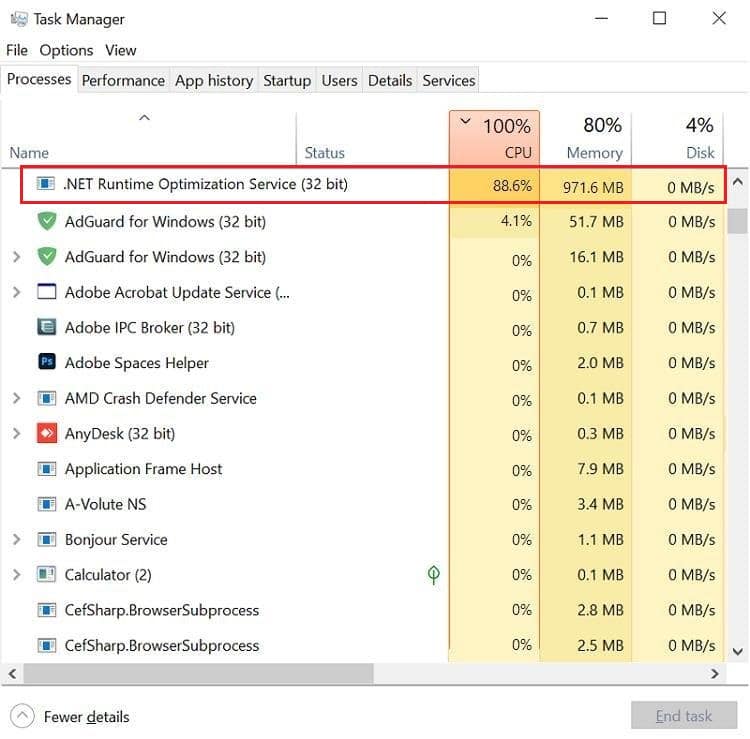
Fix Net Runtime Optimization Service High Cpu Usage techcult
If you want to stop it from running the next time you restart your computer, go to services.msc and look for the service .NET Optimization (or something similar - the executable will be mscorsvw.exe).. It runs the .NET optimizer (ngen.exe) on all installed versions of the .NET runtime and cranks through all pending optimization tasks so they.
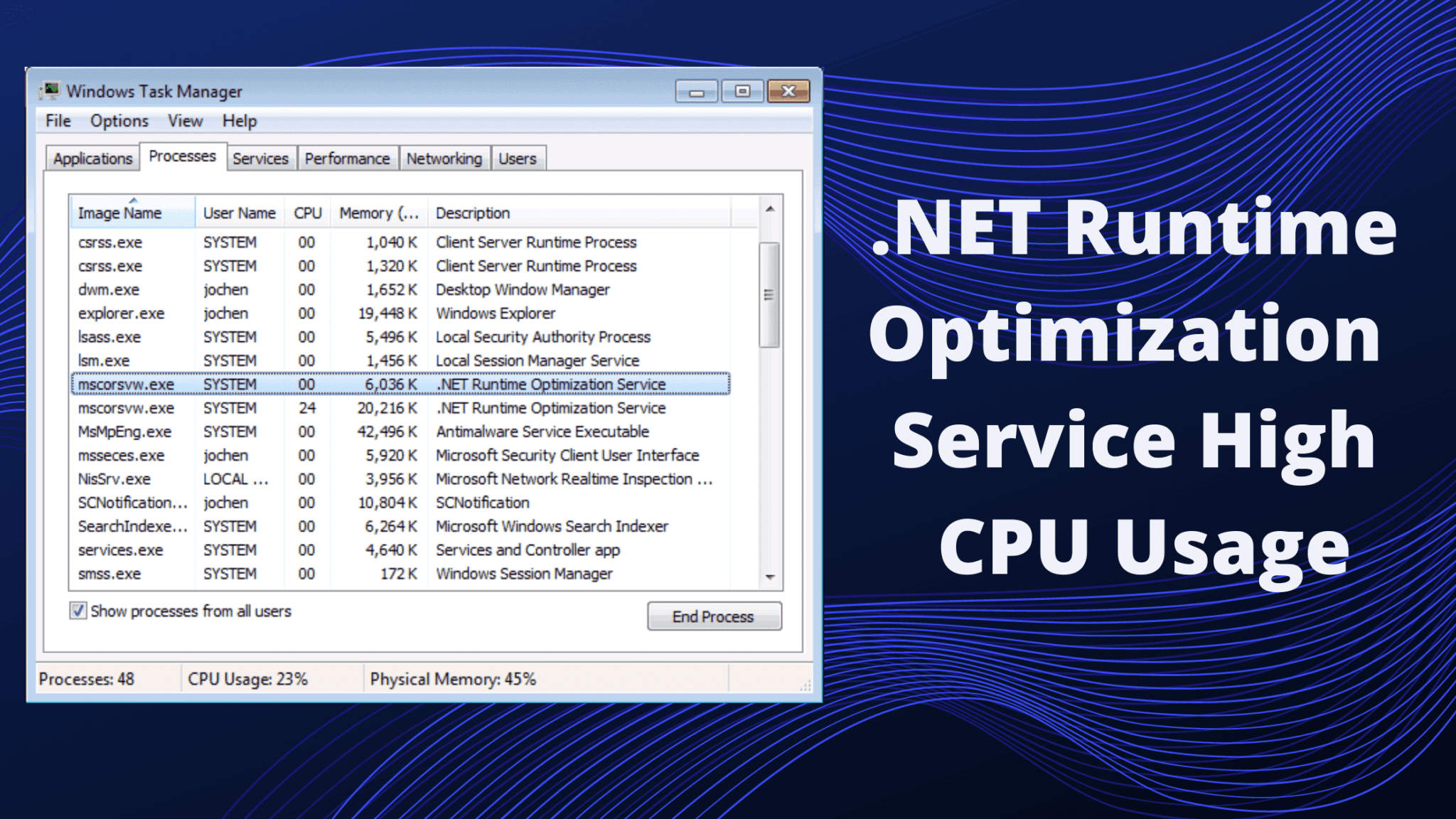
What is Runtime Optimization Service Hi Tech Gazette
What is .NET Runtime Optimization Service and why does this process appear in multiple process and eating my CPU and RAM? Previously in Windows Server 2012, this process chain can be stopped by ending the process tree, but it seem I can't find the process tree in Windows 8, it appears to be trying to communicate to the internet.
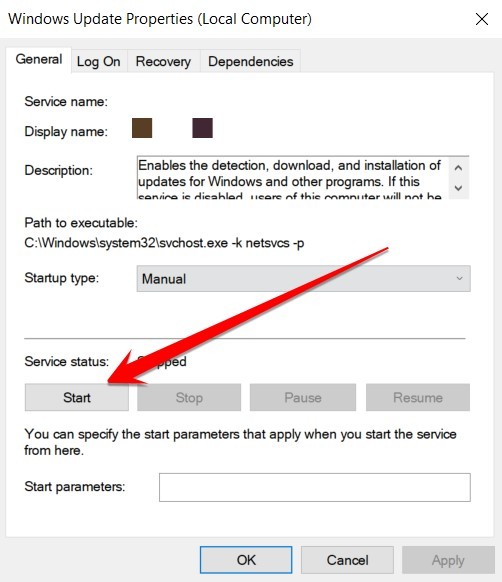
Fix High CPU Usage By Runtime Optimization Service TechColleague
What Causes the .NET Runtime Optimization Service High CPU Usage? The official answer is that the process needs to recompile its libraries and that it should only run when the computer is idle. Microsoft also states that the process shouldn't take more than a couple of minutes.

Fix Runtime Optimization High CPU and Disk Usage on Windows YouTube
The .NET Framework optimization service runs at two main times: When the .NET Framework is installed on your machine. When the .NET Framework is serviced by Windows Update. The first case doesn't happen very often.

4 Fixes High CPU Usage by Runtime Optimization Service
Make sure the Startup status: is set to Automatic. Click Apply and OK to save the changes and fix the .NET Runtime Optimization Service high CPU usage after update. 4. Perform a clean boot. Press Windows then enter msconfig and select System Configuration. Look for the Services tab and select Hide all Microsoft services.

Fix High CPU Usage By Runtime Optimization Service TechColleague
1 Answer. Sorted by: 1. Open up a command prompt and cd to C:\Windows\Microsoft.NET\Framework64\v4..30319, from there run mscorsvw.exe. If C:\Windows\Microsoft.NET\Framework64\v4..30319 doesn't exist in your system, or your %windir% isn't C:\Windows then browse your %windir% for an appropriate .Net Framework folder and run the mscorsvw.exe.

[Fixed] Runtime Optimization Service High CPU Temok Hosting Blog Optimization, Windows
When you see .NET Runtime Optimization Service's high CPU usage on your PC, you can fix it in the following ways. End the mscorsvw.exe process using Task Manager Run a Malware scan Optimize.
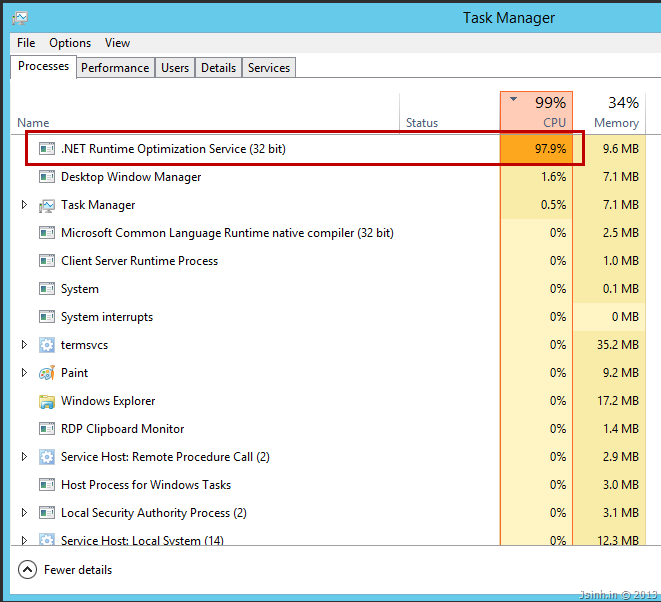
Runtime Optimization Service, Who is eating CPU cookies? This Dot Life
You can also press the key combination of Windows Key + R to launch RUN command box. Once you are into the RUN dialog box, you need to type in "services.msc" and then press Enter. Now simply look for the service named " Net Runtime Optimization Service " and then right-click and simply click on Properties. Then in the Start Type, simply.

Net Runtime Optimization Service Visualr
When the operating system KB is offered, the applicability logic will determine the specific .NET Framework update (s) will be installed. Updates for individual .NET Framework versions will be installed based on the version of .NET Framework that is already present on the device. Because of this the operating system KB is not expected to be.

Fix Runtime Optimization Service High CPU usage on Windows 11/10 YouTube
Solution 1. Scan Your PC for Malware Solution 2. Speed up the .NET Runtime Optimization Service Solution 3. Run the Official Script Made By Microsoft Solution 4. Restart the Service Conclusion You may have never noticed the mscorsvw.exe or .NET Runtime Optimization Service if you don't open task manager. What is .NET Runtime Optimization Service?
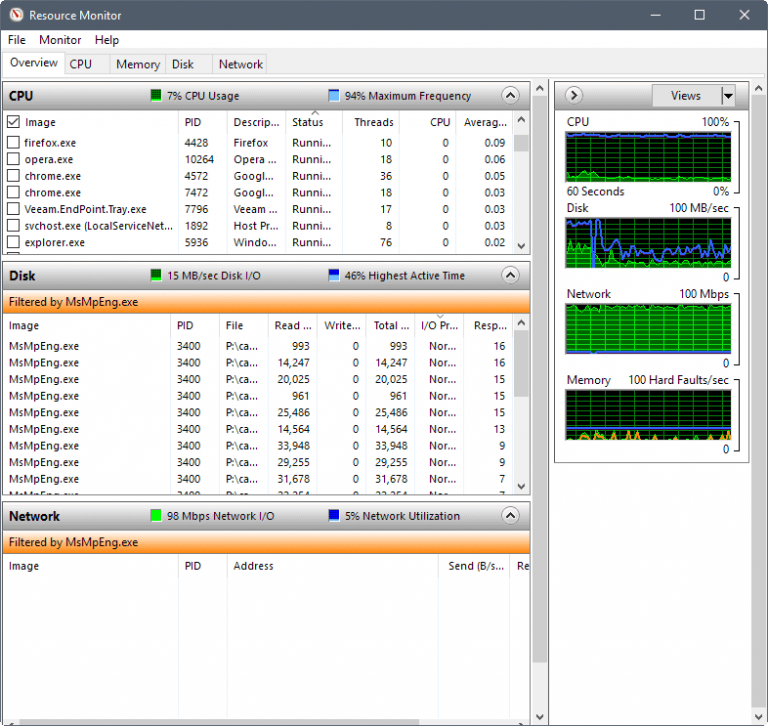
High CPU Usage by Runtime Optimization Service [Quick Solution for Windows 10/11
NET Runtime Optimization Service is part of the Service Host Superfetch, it also has multiple advantages like it launch the apps faster. Before disabling you should try the 3 methods which are listed. At first, you should speed up the .NET Running Optimization Service. So, to do soo apply the steps given.

แก้ไข Runtime Optimization Service การใช้งาน CPU สูง
2. Right-click on the Raw button and click on Save link as. 3. Make sure that the file type is Windows Script Host file. 4. Download the file. 5. Double click and execute the file to run the script. This will execute the multicore usage and tells the NET Runtime Optimization service to finish its task fast.

Runtime Optimization Service Consuming High CPU
The .NET Framework is one of the software that Windows requires to add some extended functionality to the operating system. Basically, a lot of games and video related software are very dependent on the .NET Framework service and .NET Runtime is basically an extension to it which optimizes a bit more to add more functionality to it or it runs to make sure that it plays well with the operating.
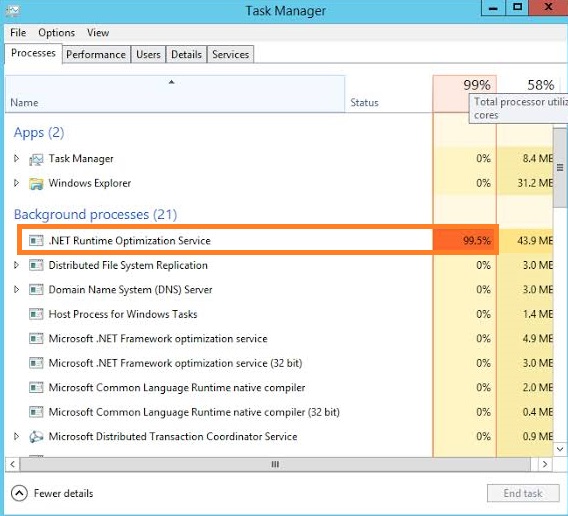
Disable Runtime Optimization Service" High CPU Usage Windows
4 Solutions to Fix the ".NET Runtime Optimization Service" High CPU Usage Issue. 1. Run a Malware Scan to Eliminate Possible Infection. The first solution is to run a malware scan to see if there is any type of infection or virus on your computer that could lead to the .NET runtime optimization service to use a high amount of processing power.

FIX Runtime Optimization Service High CPU usage? What is runtime optimization service
I usually give up after an hour or two, reboot, and some times it runs without these processes after reboot, but other times, the processes run again, and can almost completely take over the PC performance. In general, when these processes are running, I can do little else with my PC. This thread is locked.

Why Does My Runtime Optimization Service Have High CPU Usage on Windows 10? Here is the Fix
After activating some Windows Features, Smart App started popping up with warnings that the .NET Runtime Optimization Service has been blocked and has stopped it from loading. Also DLLs that I think are signed by Microsoft (mscorlib.dll, System.dll, System.Net.dll, etc) are all getting blocked and keeps giving these annoying notifications until.